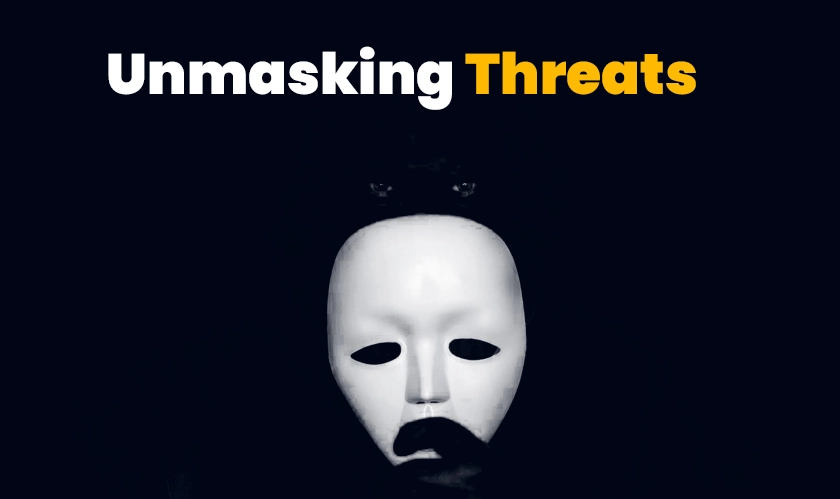Home Technology Cyber security Unmasking Threats: Safeguardin...
Cyber Security

CIO Bulletin
14 March, 2024
In today's interconnected society, both individuals and businesses constantly encounter cybersecurity threats. Among these threats, phishing emerges as a widespread form of cyberattack. The complexity of phishing attacks has evolved over time, posing risks to data security, financial stability, and reputation integrity for both individuals and organizations. However, staying well informed and vigilant can help defend against these dangers. In this blog, we will explore the significance of undergoing training in phishing awareness to ensure safety.
Understanding Phishing: What Does It Entail?
Organizations looking to strengthen their cybersecurity walls can prioritize safety with phishing awareness training. To appreciate the importance of phishing awareness training, one must grasp the concept of phishing itself. Phishing is a type of cyber assault where malicious actors masquerade as trusted sources—such as institutions, government agencies, or known brands—in an attempt to deceive users into revealing information such as usernames, passwords, or credit card details. These deceptive entities often use legitimate emails or websites.
The Rising Threat Landscape
Phishing attacks have evolved over time, with cybercriminals employing tactics that blur the line between communications and malicious schemes. By playing on emotions, such as fear or urgency, they manipulate individuals into taking action without verifying the authenticity of a message or website.
In today's business world, companies face risks if they are not adequately prepared to defend themselves against cyber threats. Incidents of data breaches can often lead to penalties for breaching data protection laws such as GDPR or CCPA. Moreover, harm to a company's reputation can result in a loss of customer confidence and subsequent revenue decrease.
The Significance of Cybersecurity Awareness Training
Relying solely on security software and firewalls is insufficient in the evolving landscape of phishing attacks. It is essential for organizations to educate their employees through phishing awareness training programs as a part of their cybersecurity approach.
By enhancing knowledge about tactics employed in phishing schemes like targeted emails or deceptive text messages, employees can improve their ability to identify threats and take action. These training sessions offer guidance on recognizing flags, verifying the legitimacy of emails or websites, and promptly reporting any activity.
Promoting a Security Conscious Culture
Phishing awareness training goes beyond imparting information; it plays a role in fostering a culture of cybersecurity awareness within organizations. Regular training sessions promote accountability and dedication to protecting data and strengthening systems against breaches. A workplace environment where cybersecurity is deeply ingrained in the company's principles encourages a sense of responsibility among employees.
In this age, various departments in an organization must collaborate effectively in order to prevent phishing attacks.
Adopting a company approach to sharing information and knowledge about phishing techniques can spread organically within teams and individuals, enhancing the defense of organizations.
Keeping Up with Changing Threats
As cybercriminals constantly evolve their tactics to exploit weaknesses, it is crucial for phishing training programs to upgrade accordingly. Companies should partner with trusted cybersecurity experts who can deliver training materials that address emerging threats effectively. By staying abreast of the trends and strategies employed by cyber attackers, organizations can better prepare their employees to handle risks.
Evaluating Effectiveness
To gauge the impact of phishing awareness training initiatives, organizations should regularly evaluate their effectiveness. One method to achieve this is through conducting phishing simulations that assess how well individuals apply their training in different scenarios. These exercises provide insights into areas that may require development or attention.
Wrapping Up
In summary, ensuring that individuals and businesses are well prepared to defend against phishing attacks is essential in today's landscape. By incorporating cybersecurity training programs into their security protocols and fostering a culture where all employees take ownership of safeguarding resources, businesses can significantly reduce the likelihood of falling prey to phishing scams. Education plays a vital role by equipping individuals with knowledge that empowers them to prevent attacks proactively.
Additionally, we can improve security measures by identifying threats and promoting safety with phishing awareness training.







